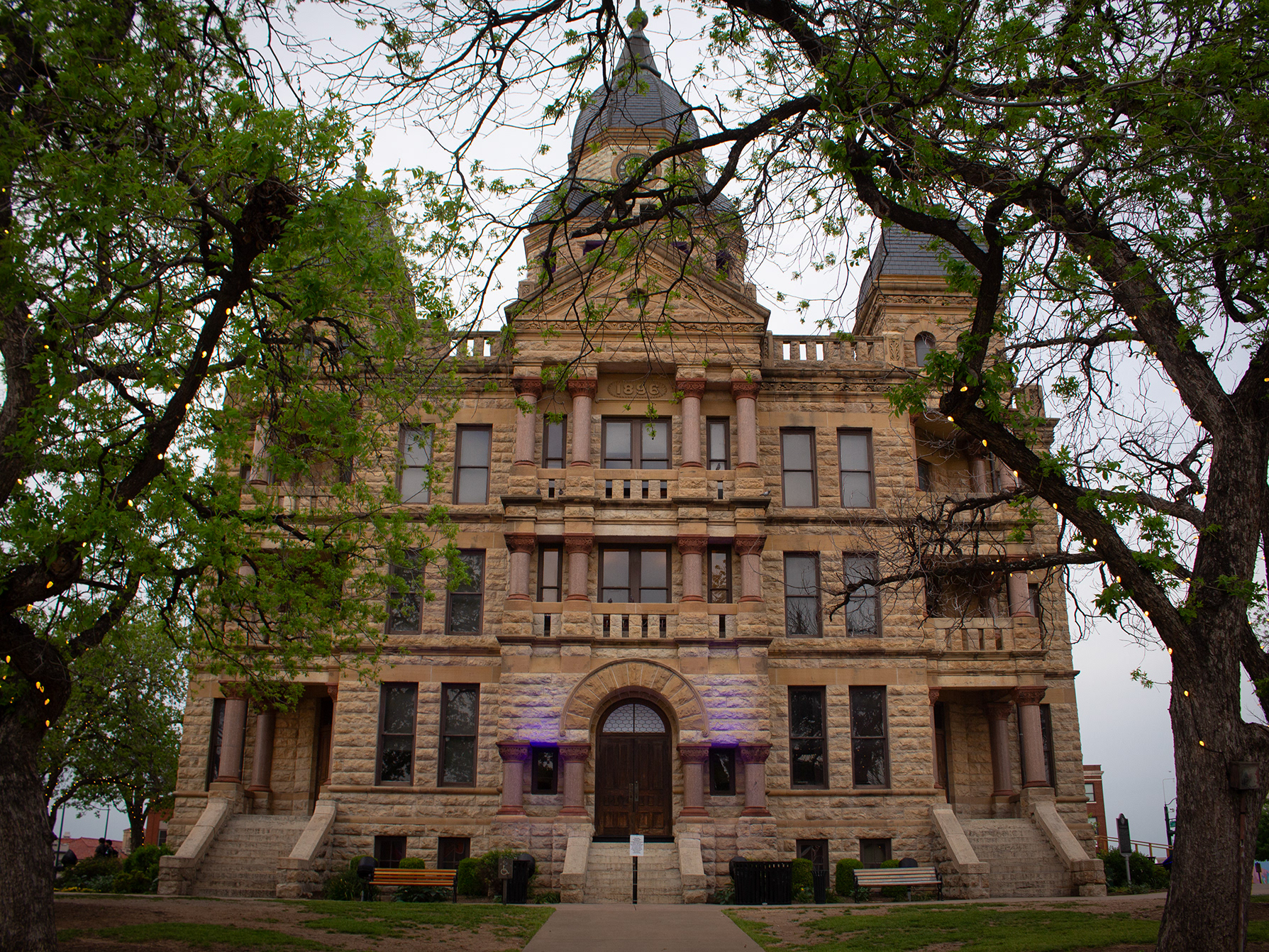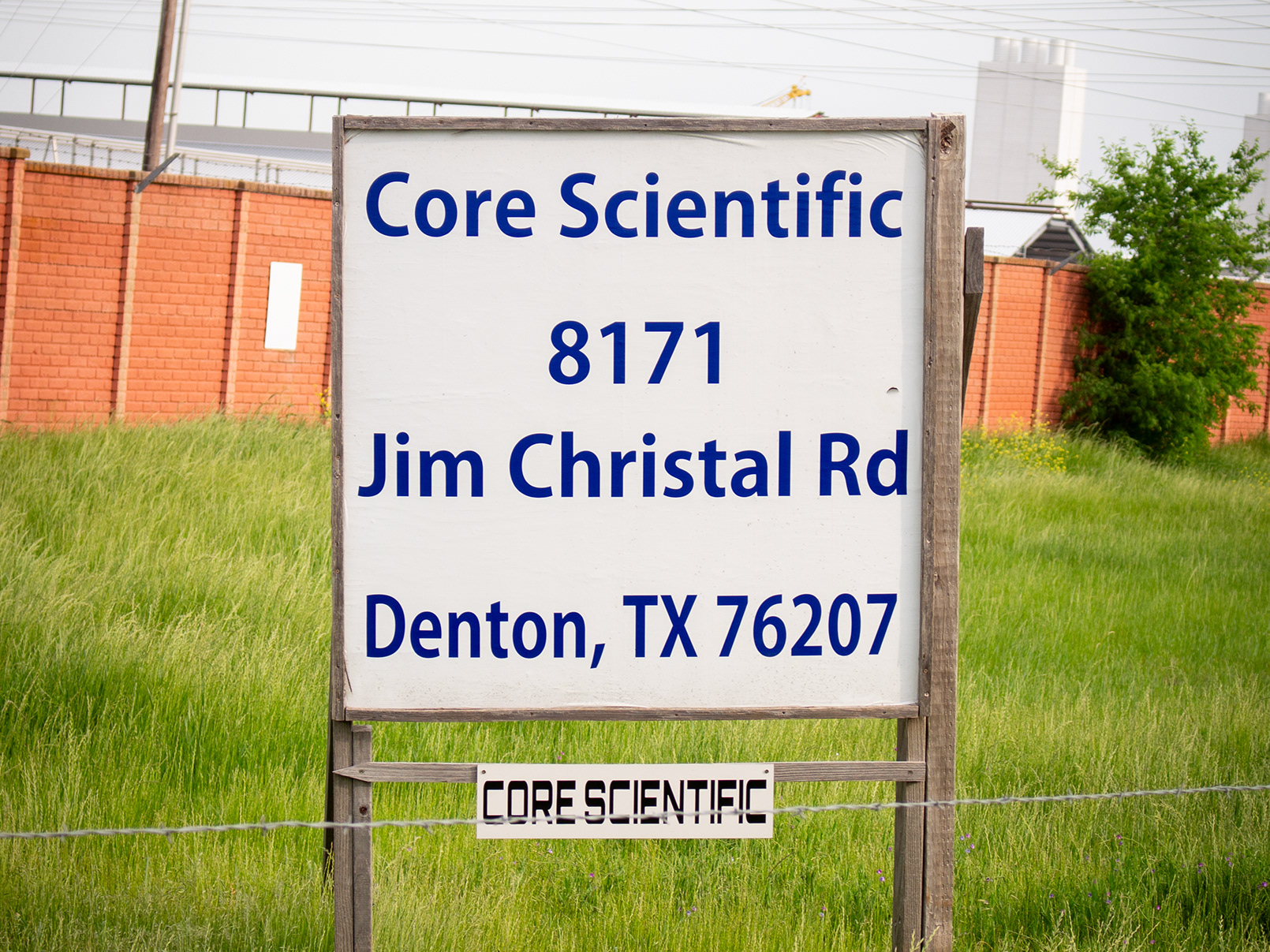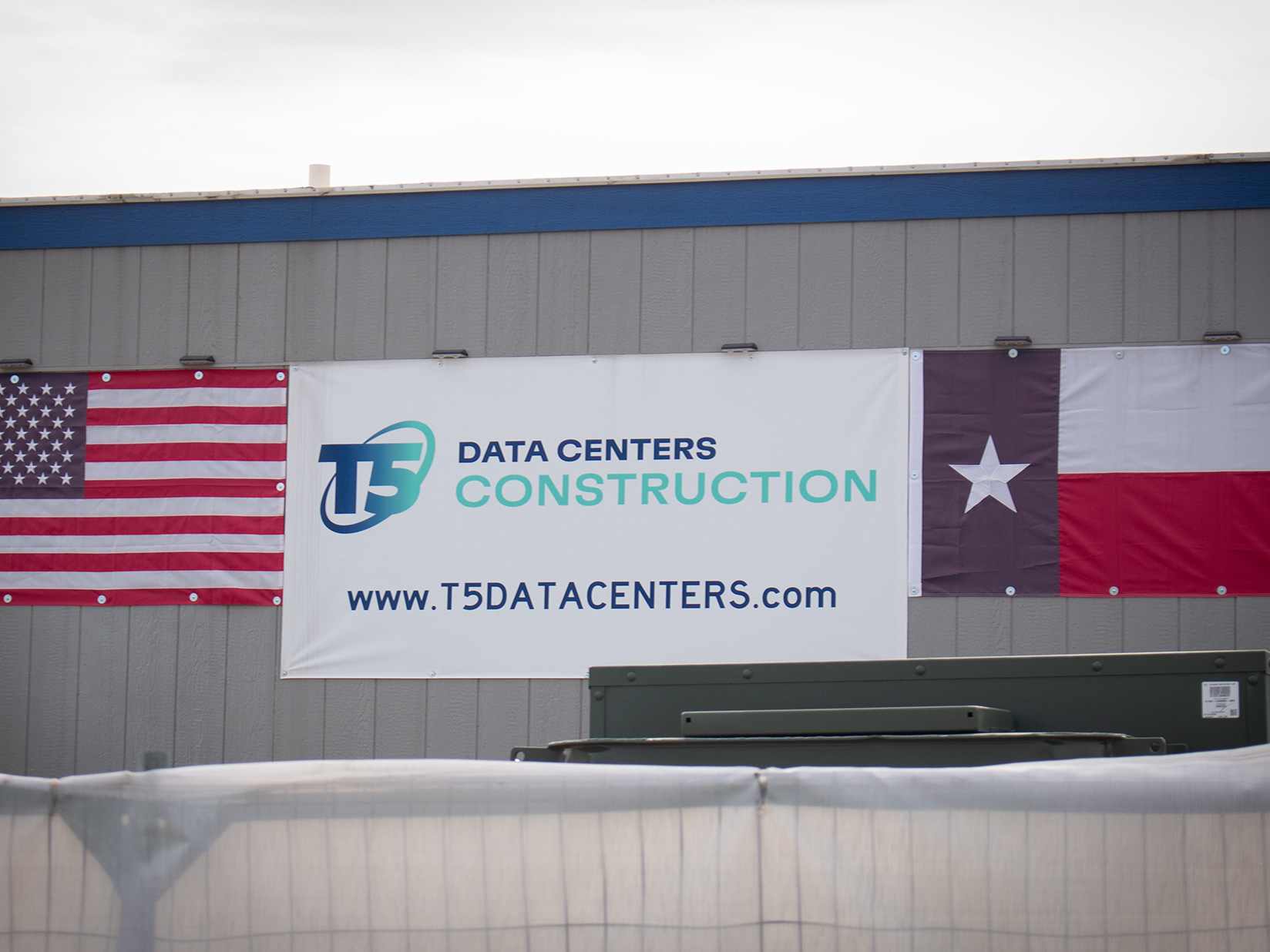Denton's embrace of AI means big money for the economy but big problems for the environment
Denton is one of many North Texas cities that has made a deal with AI data centers in recent years to boost their economies, but the long-term environmental impact could be devastating.
By: Dylan Duke
At the Aug. 24, 2021, Denton city council meeting, council member Deb Armintor found herself as the lone dissenting voice on a vote against a deal with the bitcoin miner Core Scientific. Armintor, a University of North Texas English professor, is no stranger to going against the grain. But now she felt the city was making a deal with the devil to raise money for Denton Municipal Electric, the city-owned electric company saddled with $141 million in debt after that year’s deadly Winter Storm Uri.
In late 2022, Armintor’s concerns would be vindicated. The price of bitcoin crashed and took big miners like Core, who rely on selling the coins, with it. Core filed for bankruptcy in 2022, and for many this event seemed to mark the end of Denton’s story with cryptocurrency.
“I believed, and still believe, that it's a scam,” Armintor said. “I voted no because of the environmental harm. This crypto facility, which is now a data mining facility, doubles the
total energy use and carbon footprint of our city, which is already very high.”
But not only did Core emerge from bankruptcy after the price of bitcoin recovered, they expanded their business from just mining crypto to hosting the computers that power A.I. – the technology many predict to disrupt the global economy. Core announced in November, 2024, they would convert their Denton bitcoin facility into one of the largest sites for High Performance Compute A.I. servers in America, projecting a $6.1 billion investment, the creation of about 500 jobs and being fully operational by 2027.
Denton is just one of many North Texas cities that have taken on large, energy-intensive data centers in the hopes they will bring in high-paying jobs and boost the local economy. But many environmentalists say these data centers are so energy intensive they are accelerating climate change and straining an already feeble energy grid. The Core data center will undoubtedly boost the local economy of Denton and help DME pay off millions in debt, but when fully built out, it could draw more energy than all the homes of Denton.
Environmental and grid reliability concerns are real.
Since Winter Storm Uri, distrust has grown among Texans for the unique energy grid the state uses which is controlled by the Electric Reliability Council of Texas. The energy grid is completely isolated from neighboring state grids, meaning nearly all energy consumed in the state has to also be produced in the state. If demand exceeds the capacity of the grid, ERCOT has to initiate rolling blackouts to keep the system alive. Large energy customers like Core are paid by ERCOT during times like that to shut down operations to free up energy for the grid.
Council member Brian Beck, who voted to approve the deal with Core, said this is one of the cons of the data center.
“You tell them to shut off by basically paying them not to run,” Beck said. “So now the electricity is available, but you pay them back. So by doing nothing, they earn money.”
He also said since the company transitioned to A.I., it draws power like a traditional industrial building, rather than a bitcoin operation which would fluctuate its energy usage depending on the profitability of creating bitcoin.
“If you're that business you're hoping that DME, during a winter storm, doesn't shut you off. But you're going to try to run until DME shuts you off. So that's kind of a con in the transition, but it is a pro that we're switching away from the kind of sketchiness that this cryptocurrency world can be in.”
In February and April, ERCOT projected that data centers would be the main cause for a huge demand in energy, and, in a worst case scenario calculation, cause demand to outstrip supply as early as 2026.
ERCOT’s prediction, which takes into account planned data centers which may not all be built, shows data center energy consumption increasing from 3.7 Gigawatts in 2025 to 86.2 GW in 2031 – enough energy to power 21.5 million homes.
“Those big loads definitely increase the complexity of the financial decisions that have to go on,” Beck said. “There's no doubt about that.”
There will be increased grid instability if ERCOT cannot keep up with energy demands, resulting in more deadly weather events like Winter Storm Uri.
A look into how much power is being drawn.
The Core data center will have a total capacity of 394 MW, or about enough energy to power 98,500 homes – 1 MW powers roughly 250 homes, according to ERCOT. There were about 59,711 households in Denton in 2023, meaning the data center could be consuming 165% more energy than all homes in Denton if operating at maximum capacity.
That makes the data center's location of being on the same property as the Denton Energy Center make a lot more sense. The DEC is a 225-MW natural gas power plant that sells energy into the ERCOT market and can provide energy to Denton in emergencies. While the DEC doesn’t sell directly to the data center, it does sell to ERCOT, which then provides electricity to DME and then to the data center.
“The DEC generates electricity that goes into the ERCOT power grid, the ERCOT grid is what powers Denton,” Stuart Birdseye, the public information officer for DME, said. “So, while it is likely that at least some of the energy consumed in Denton has been generated locally, it would be very difficult to prove out because once it’s in the system, it’s all the same.”
A look at DEC’s publicly reported data shows the DEC outputs more energy when Core has been operational than even when severe weather events have caused usage to spike – but this data only shows a correlation and other factors could be at play.
Core began bitcoin mining operations in February, 2021, and then in the following months the DEC’s output skyrocketed to 70,000 MWh in August. It doesn’t seem this can be totally accounted for by the summer weather because the next summer, in 2023 when Core had already filed for bankruptcy, was the second hottest Texas summer ever recorded and the DEC peaked at about 64,000 MWh of output. Furthermore, output during Winter Storm Uri only peaked at 32,000 MWh, but that’s because the plant had its gas supply shut off.
If this data is showing the data center pulling a lot of energy from the DEC, and the location of the data center does seem intentional, then that hampers Denton’s claim that this data center is running off of 100% renewable energy – a claim DME can make because it purchases Renewable Energy Credits.
On the bright side, there’s a lot of money to be made.
Core’s 79-acre data center is being constructed on city-owned land pulling in $194 million for the city over 10 years through a lease agreement. Core did not request tax incentives from the city, but did apply for incentives from the state.
Beck said this revenue is a big positive of the data center because that money can be used to fund one-off projects and the city’s sustainability fund.
“We sent [that money] to the sustainability fund that I helped get created, where that will fund, you know, like monitoring other green-sense rebates. So not only are we reducing the carbon footprint by 2 million tons, but we're reducing it more by putting the revenue that we get in from [the lease] into green-sense programs that will reduce the electrical consumption even more. So we're funding that kind of program, and then a little bit went to the economic development fund to help bring businesses to Denton, and a little bit went to the roads. And so those are the three areas that we spent the money on.”
The company said the center will create 300 full-time jobs and 200 independent jobs, which would make it one of the largest private employers in Denton if their estimate is correct. The city estimates the project will generate a net positive of $430 million in taxes to Denton’s economy.
It’s likely other data center companies will also move into Denton if the Core location is successful. The pull factors of Denton are strong: cheap electricity that is backed by RECs, an energy company that is now experienced in working with data centers, and plenty of land left around the DEC to be developed.
“This site will serve as a model for high-performing computing innovation,” City Manager Sara Hensley said.
Armintor, who’s no longer a city council member, isn’t convinced. She said things like the sustainability fund were a promise by the city to convince her environmentalists colleagues to approve an energy-hungry data center.
“That's how they got the other environmentalists on the council to vote yes because they were promised this little goodie bag of the sustainability fund.”
Other contributors: Natalie VanDerWal, Parker Smith, Marty Bratcher, Taggart Kent and Matthew Stone



